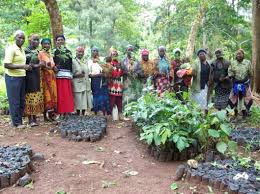
In the heart of Kibera, Kenya’s largest informal settlement, a remarkable group of Nubian women is blending tradition, innovation, and resilience through urban farming.
Founded in 2019, The Mazingira Women Initiative has become a beacon for sustainable agriculture and cultural preservation, empowering Nubian women to reclaim their heritage while building climate-resilient food systems in one of Nairobi’s most challenging environments.
Experts say the Mazingira Women Initiative is part of a broader urban movement toward climate-smart, localized food systems. Stephen Otieno, an urban planner and food systems strategist, notes, “Climate change keeps shifting the goalposts for urban farmers. By focusing on indigenous crops that are more climate-resilient, communities like these are better prepared for the future.”
Kibera, whose name is derived from the Nubian word “kibra” meaning forest, has long been home to a vibrant Nubian community. Yet, its residents face chronic land insecurity, limited resources, and environmental challenges. Against this backdrop, the Mazingira Women Initiative has grown to 50 active members, transforming small plots and rooftops into productive gardens using innovative hydroponics and circular farming techniques.
These women not only grow traditional vegetables but also recycle organic waste, produce natural fertilizer, and spearhead community clean-ups,turning agriculture into both a livelihood and a form of environmental stewardship.
The initiative’s focus on indigenous crops is rooted in community preferences and cultural pride. “In our community, almost 90% of the people prefer traditional foods like indigenous vegetables,” explains Salma Rashid, a member of the group.
The women cultivate crops such as nyagwa (amaranth), bamia (okra), and mulkia (jute mallow), which are key ingredients in cherished Nubian recipes like mafrouk mulliavma bamia stew,a slow-cooked blend of okra and mulkia typically served with gurusa, a soft, fermented pancake made from wheat and maize flour. These efforts have not only ensured a steady market for their harvests but have also revived culinary traditions that risk being lost to urbanization.
For younger members like Asia Abdalla, joining the initiative has been transformative. “Before joining the group, I didn’t know much about Nubian traditional foods. Now, I not only grow them but understand their place in our culture,” she says, highlighting the group’s role in fostering intergenerational knowledge transfer.
Despite their successes, the women contend with the constant threat of displacement and shifting land use policies that can upend months of hard work overnight. “Sometimes you can’t be sure how long you’ll be allowed to grow your vegetables,” says Malasen Hamida, the initiative’s founder. This uncertainty is a shared reality for many urban farmers in informal settlements across Africa.
Through their commitment to circular gardening and hydroponics, Kibera’s Nubian women are not only feeding their families but also reclaiming their roots, inspiring neighbors, and proving that tradition and innovation can thrive side by side in Africa’s rapidly changing urban spaces.




